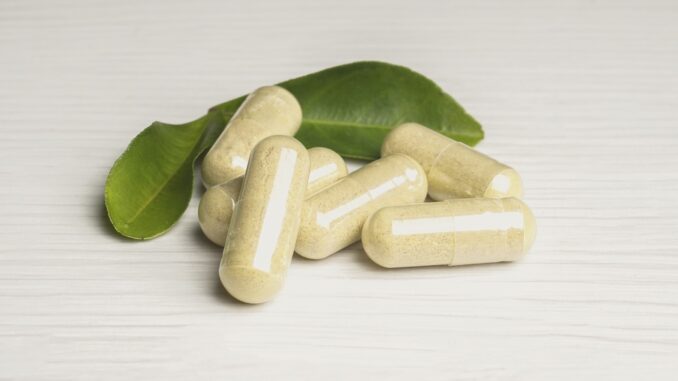
After the gallbladder removal, digestive enzymes may become a key factor in your diet. Post-surgery, the body’s ability to produce and use bile—which helps break down foods—is compromised. Without the help of digestive enzymes, digestion can be incomplete and the risk of developing further issues increases. In this blog post, we’ll explore how digestive enzymes work after gallbladder removal, as well as some tips on how to incorporate them into your daily life. We’ll also discuss potential risks that come along with taking digestive enzyme supplements and provide tips for finding a quality product.
Understanding Digestive Enzymes
Digestive enzymes are special proteins that help your body break down and absorb the food you eat. Enzymes are produced by the cells in your digestive system, pancreas, and liver. They are also found in raw fruits, vegetables, and meats.
Your body needs digestive enzymes to properly break down and absorb fats, carbohydrates, and proteins. Without adequate enzymes, you can experience indigestion, gas, bloating, and other digestive problems (1).

If you have had your gallbladder removed, you may need to take supplemental digestive enzymes to help with fat digestion. Fat digestion is typically more difficult without a gallbladder because this organ stores bile which is needed for fat breakdown.
Supplemental digestive enzymes can be taken with or before meals. They are available in capsules or tablets form at most health food stores.
What Happens After Gallbladder Removal?
After your gallbladder is removed, you may have some digestive changes. Your doctor will probably tell you to take it easy for a few days and then slowly add fiber-rich foods back into your diet. You may also need to take digestive enzymes and bile salts to help with digestion (2).
Importance of Digestive Enzymes after Gallbladder Removal
After the removal of the gallbladder, you may find that your digestive system doesn’t work as well as it used to. This is because the gallbladder plays an important role in digesting fats. To help your body adjust to this change, you may need to take digestive enzymes.
Digestive enzymes are special proteins that help your body break down food. They are found in the pancreas and small intestine, and they work by breaking down carbohydrates, proteins, and fats into smaller parts so that your body can absorb them (3).
Taking a digestive enzyme supplement after gallbladder removal can help your body digest food more effectively and reduce symptoms such as bloating, gas, and diarrhea (4). It’s important to talk to your doctor before taking any supplements, however, as they can interact with certain medications.
Gallstones are often made up of cholesterol or calcium deposits. These stones can block the flow of bile from the gallbladder to the small intestine. This can lead to indigestion and abdominal pain.
Types of Digestive Enzymes for Post-Gallbladder Removal
There are three main types of digestive enzymes that are important for people who have had their gallbladders removed:
- Lipase enzymes help to break down fats.
- Protease enzymes help to break down proteins.
- Amylase enzymes help to break down carbohydrates.
Lipase, protease, and amylase enzymes are all produced by the pancreas and are essential for proper digestion. People who have had their gallbladders removed may need to take supplemental digestive enzymes in order to properly digest their food and absorb nutrients.
Benefits and Risks of Digestive Enzyme Supplementation
Digestive enzyme supplementation can have both benefits and risks. The potential benefits include improved digestion, increased nutrient absorption, and reduced inflammation. The risks include gastrointestinal discomfort, allergies, and interactions with medications. Digestive enzyme supplementation is not right for everyone, so it’s important to talk to your doctor before starting any supplement regimen.
How to take Digestive Enzymes?
If you have had your gallbladder removed, you may be wondering if you need to take digestive enzymes. The answer is that it depends on your individual situation. Some people find that they have no problems with digestion after gallbladder removal, while others may experience some digestive issues. If you are experiencing any digestive problems, taking a digestive enzyme supplement may help.
There are a few things to keep in mind when taking digestive enzymes. First, be sure to take them with food. Taking them on an empty stomach can actually make your digestion worse. Second, start with a low dose and increase gradually as needed. And finally, be sure to choose a quality supplement from a trusted source.
How to Choose and Take Digestive Enzyme Supplements?
There are a few things to consider when choosing digestive enzyme supplements. First, it is important to consult with a healthcare professional to determine if you actually need enzymes. Those who have had their gallbladders removed are more likely to need supplemental enzymes, but there are other factors that can contribute to needing them as well. Once you have determined that you would benefit from taking enzymes, the next step is to choose the right supplement.
There are many different types of digestive enzyme supplements on the market. Some are designed to be taken with meals, while others can be taken before or after meals. There are also products that contain multiple enzymes, and others that only contain one type of enzyme. It is important to read the labels of products carefully to ensure you are getting the right type of supplement for your needs.
When taking digestive enzyme supplements, it is important to follow the directions on the product label. Enzymes should be taken with water, and it is best to take them with food or shortly after eating. Those who have difficulty swallowing pills may want to look for enzymatic powders or liquids that can be added to water or juice. It is also important not to take more enzymes than recommended, as too much can lead to gastrointestinal discomfort.

Lifestyle and Diet Modifications for Optimal Digestive Health.
Your gallbladder is a small, pear-shaped organ on the right side of your abdomen, just beneath your liver. The gallbladder stores bile, a digestive fluid produced by the liver. Bile helps you digest fats.
After your gallbladder is removed, bile flows directly from the liver into the small intestine through a tube called the common bile duct. This can sometimes cause diarrhea because the intestines are not used to having such a high concentration of bile(5).
There are several things you can do to promote optimal digestive health after your gallbladder is removed:
- Eat smaller, more frequent meals instead of three large meals each day. This will help your digestive system to better handle the increased amount of bile.
- Avoid high-fat foods, as they can be difficult to digest without a gallbladder. Instead, focus on lean proteins, fruits, vegetables, and whole grains.
- Drink plenty of fluids throughout the day to keep your body hydrated and help move food through your system. Good choices include water, unsweetened tea, and low-fat milk.
- Exercise regularly to help keep things moving along smoothly in your digestive tract. Walking is a great way to get started if you’re not used to being active.
Conclusion
Digestive enzymes after gallbladder removal are an important part of managing your digestive health. They can help to break down food, reduce bloating and gas, and improve nutrient absorption. It is important to speak with a doctor or dietician about the right supplement for you if you have had a gallbladder removed so that you get all the necessary nutrients your body needs in order to stay healthy. With careful monitoring of your diet and lifestyle changes, taking digestive enzymes after gallbladder removal can make life much easier!
Article Studies, References, and Resources
- Digestive Enzyme Supplementation in Gastrointestinal Diseases By Gianluca Laniro – https://www.ncbi.nlm.nih.gov/pmc/articles/PMC4923703/
- Managing weight loss after gallbladder removal By Nicole Galan RN – https://www.medicalnewstoday.com/articles/317659
- What Are Digestive Enzymes? By Sheena Smith MS.,MA – https://www.thorne.com/take-5-daily/article/what-are-digestive-enzymes-and-could-i-benefit-from-using-them
- Digestive Enzymes and Digestive Enzyme Supplements By Morgan Denhard, MS, RD, LDN – https://www.hopkinsmedicine.org/health/wellness-and-prevention/digestive-enzymes-and-digestive-enzyme-supplements
- Biliary System Anatomy and Functions https://www.hopkinsmedicine.org/health/conditions-and-diseases/biliary-system-anatomy-and-functions


Nice post. I was checking constantly this blog and I’m impressed!
Extremely useful information specifically the last
part 🙂 I care for such information a lot. I was seeking
this particular info for a long time. Thank you and best of luck.
Its like you read my mind! You appear to know so much about this, like you wrote the
book in it or something. I think that you could do with a few pics to drive the message home a little bit, but instead of
that, this is magnificent blog. A fantastic read. I will certainly be back.
I was suggested this blog by my cousin. I’m not sure whether this post is written by him as no one else know such detailed about my problem.
You are amazing! Thanks!
Greetings from Florida! I’m bored at work so I
decided to browse your site on my iphone during lunch break.
I really like the info you present here and can’t wait to take a look when I
get home. I’m shocked at how fast your blog loaded on my
mobile .. I’m not even using WIFI, just 3G .. Anyhow, fantastic site!
I don’t even understand how I finished up right here, but I believed this put up was great.
I do not recognize who you’re but certainly you are going to a famous blogger when you
are not already. Cheers!
Hello there! I know this is kind of off topic but I was wondering which blog platform are you using for this site?
I’m getting tired of WordPress because I’ve had problems with
hackers and I’m looking at options for another platform.
I would be great if you could point me in the direction of a good platform.